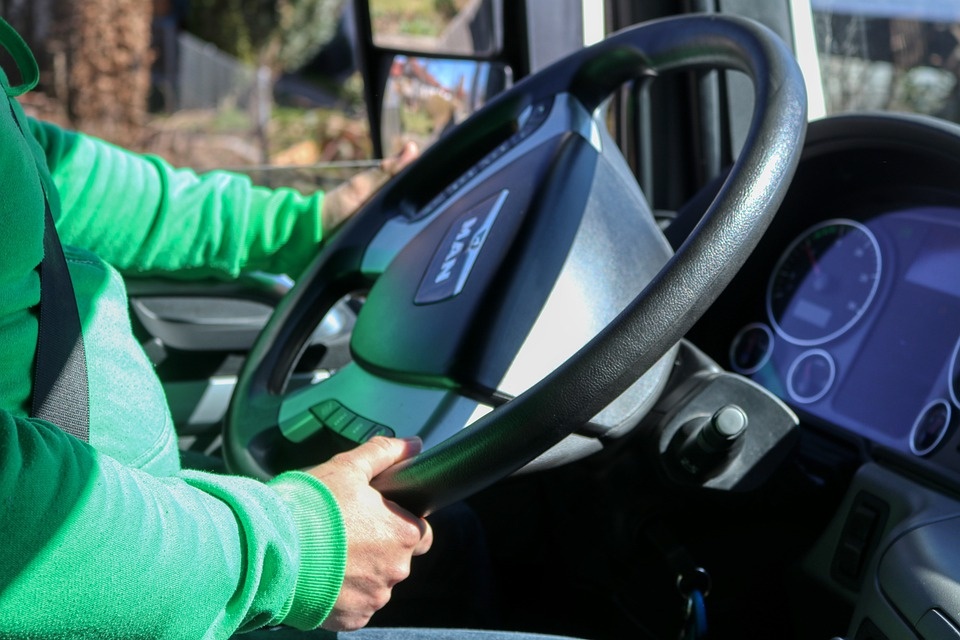Need help? We're here!
(888) 312-8812 Login Signup5 Ways to Fight Boredom While Trucking (Without Losing Focus)
July 27, 2020

July 27, 2020

Image Source: Pixabay
Long-haul trucking can be a very lucrative career, but it does have its share of downsides. And for many truckers, a common complaint is boredom. While driving a truck does require one’s full attention, most of the work hours are spent either on long stretches of highway or being stuck in traffic. The winter months are especially brutal, as the closed roads and more frequent vehicular mishaps often lead to getting stuck for hours inside the cab.
When trucking, boredom can become a serious issue as the lack of activity can lead to drowsiness and increased risk of accidents. Federal guidelines do address this concern through mandatory driving limits and other guidelines that truckers must obey. Still, there are steps that drivers can take to keep themselves alert and entertained while on the road.
Whether you’re a grizzled vet or the new guy or gal, here are some tips you can follow to fend off boredom while trucking:
Listening to music has been a time-honored way of fending off boredom while on the road. But, if you feel like doing something more productive, there are options you can take for self-improvement while driving. Podcasts, for example, are an excellent place to start with many topics available, including self-help, history, literature, arts and culture, and more obscure topics. If you're more of the bookworm type, audiobooks may be right up your alley. You can download and purchase audiobooks easily from Audible or from mobile app stores. At the same time, most public libraries offer physical audiobooks that you can borrow for several weeks.
If you want to learn a new skill or are planning to travel outside of the country, you may also consider investing in a language-learning app or CD. Modern audio-based language programs are highly efficient and simply require you to listen. While it's not an equal substitute for actual immersion, learning a language and how to use it at the comfort of your vehicle is the next best thing.
According to the American Psychological Association, practicing mindfulness on a regular basis can lead to increased focus, working memory, and cognitive flexibility while keeping anxiety and symptoms of depression to a minimum. There are tons of resources that go into mindfulness with much detail, but it all starts by acknowledging that you intend to be mindful while driving. Once you’re buckled up, take a few deep calming breaths and try to be aware of your body. Pay attention to where your hands are on the steering wheel and your immediate surroundings, including the sights and sounds around you. The idea is that you should be constantly aware of your body and what you see and hear at the moment. This may prove challenging to do for the entire commute, but it does get easier with practice.
Filling up forms may not be the most exciting recommendation on this list, but if you’ve got a couple of minutes to spare, getting the paperwork out of the way now feels a lot better than leaving it all at the last moment and doing it in your own time. Doing paperwork also helps keep you focused, which can help you maintain productivity as well as make delays go by all the quicker.
Loneliness is one of the common downsides of trucking, with periods of not seeing family and friends for days at a time. But if you're stuck in traffic, why not give someone a call? Take it as an opportunity to stave off homesickness and catch up with what's happening back home. And with tons of mobile apps offering audio and video chat, having a virtual face-to-face conversation is even more accessible almost anywhere on the road. Just keep in mind, however, to only use your phone while your vehicle is stationary and not while driving.
If your job affords it, consider having someone ride along with you. Lots of truck drivers bring their partners along to keep them company through the entire journey. Some couples even tandem drive with one driving the truck while one rests and switch places afterward. This results in more miles per driver in half the time, and you have someone to talk to along the way. Another alternative is to bring a pet such as a dog or a cat along with you as you travel, but you have to make sure that they are secured while driving to avoid accidents.
If the boredom does become severe enough that it starts to affect your driving, don't hesitate to pull over and take a quick break. A bit of fresh air might just be what you need to get yourself up and running again. Be sure to get plenty of sleep as well, especially after several hours of driving on the road.